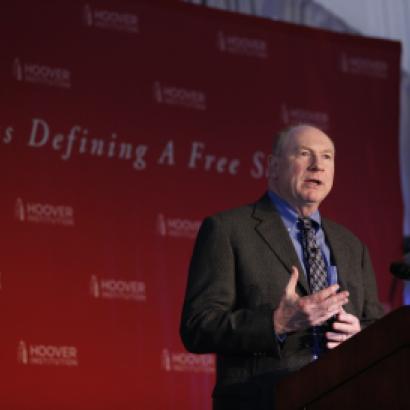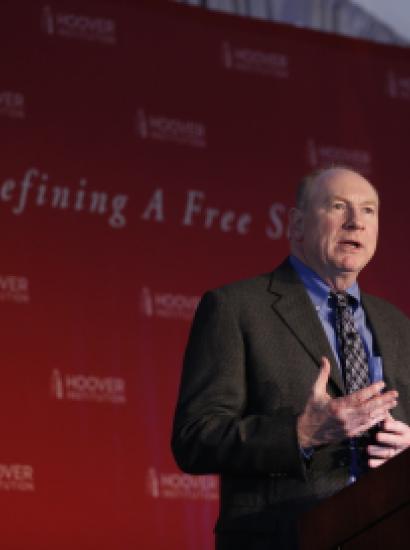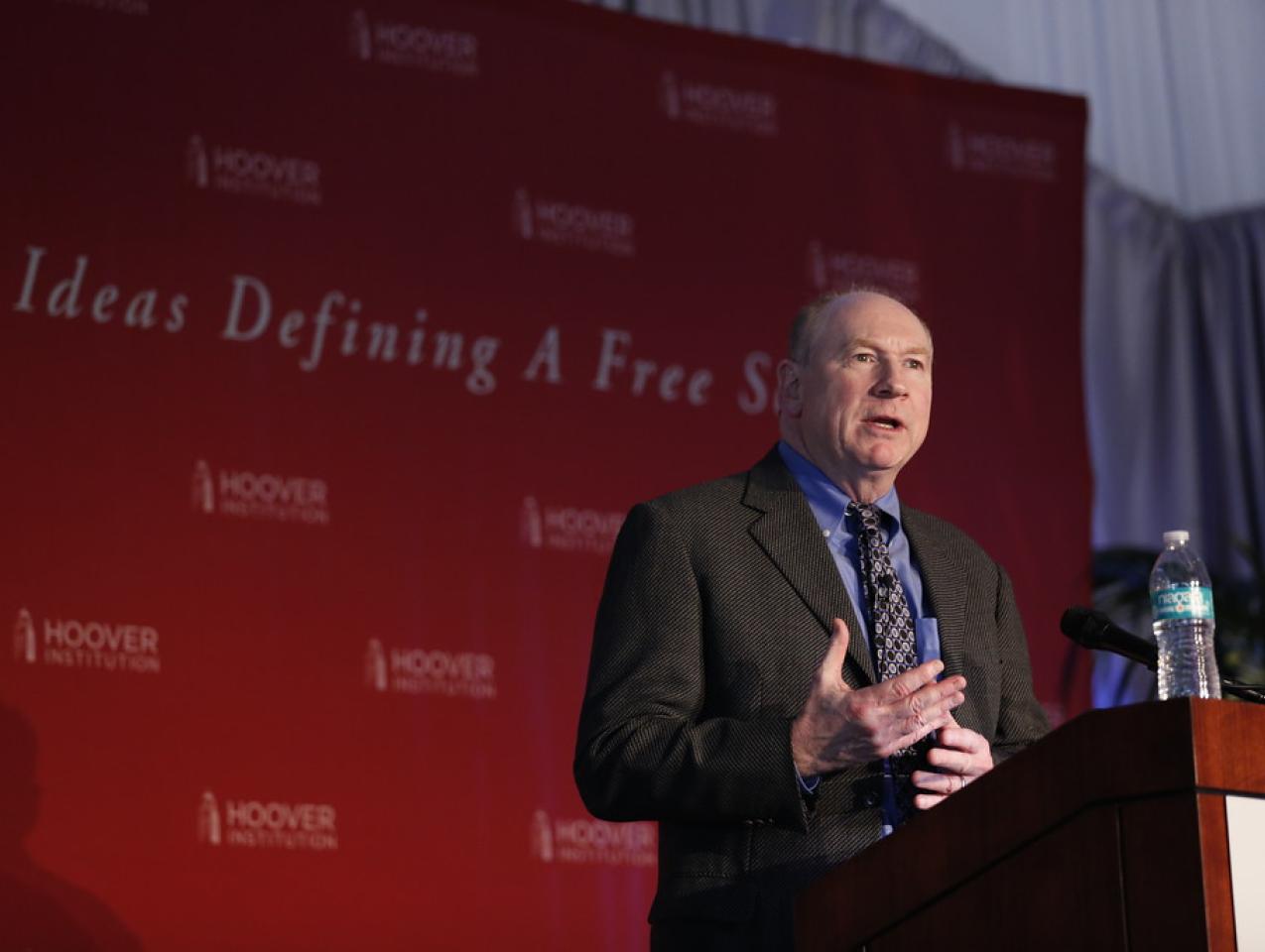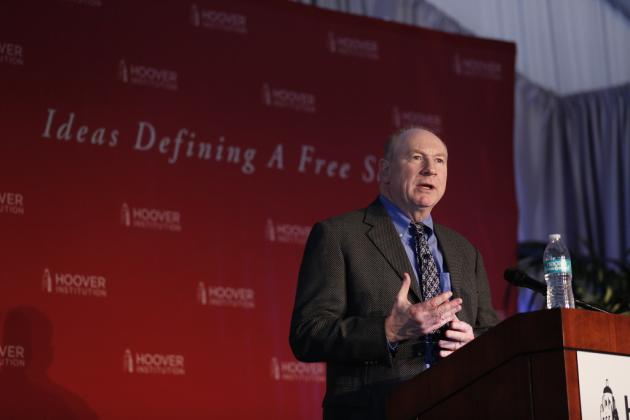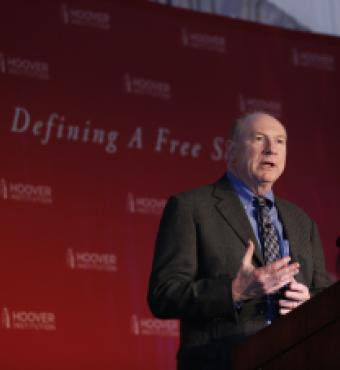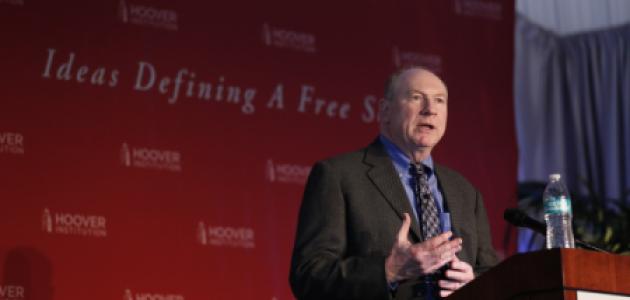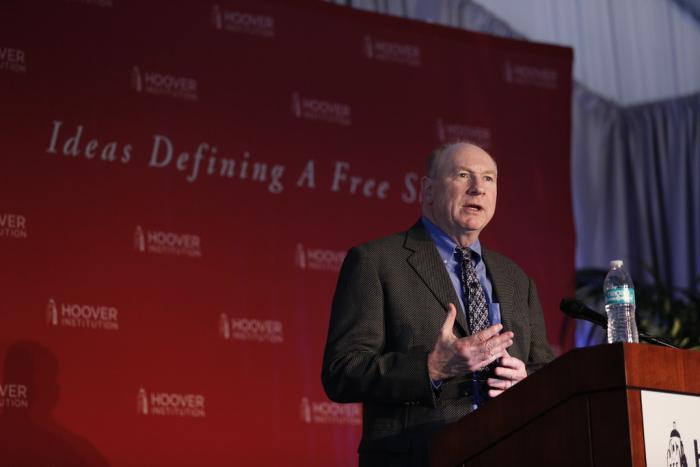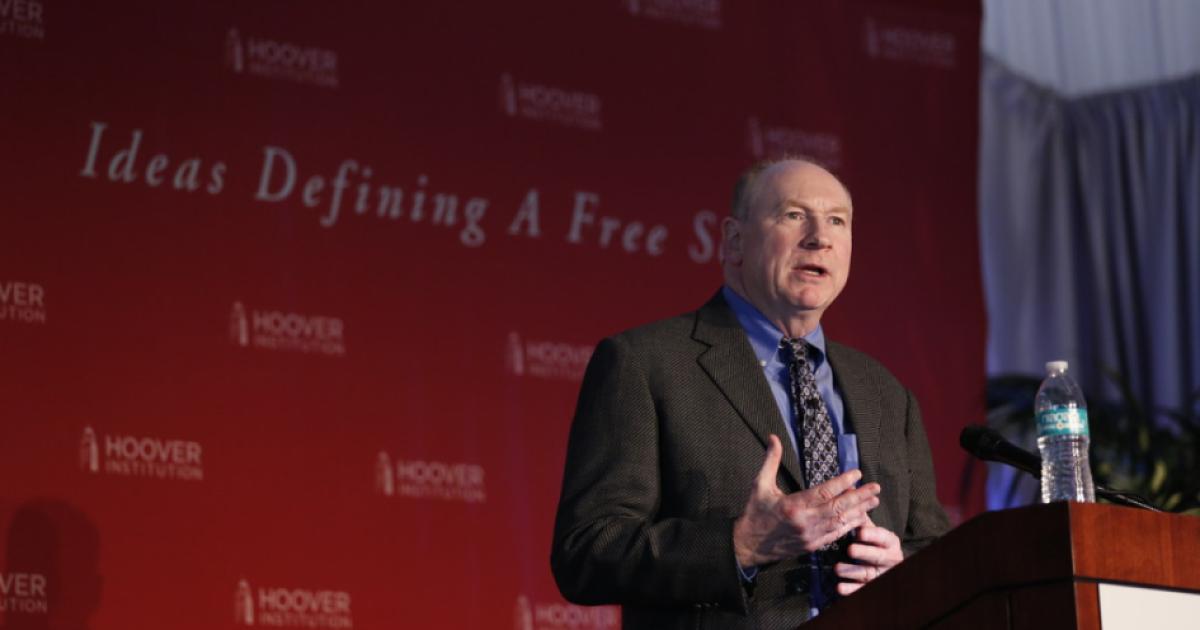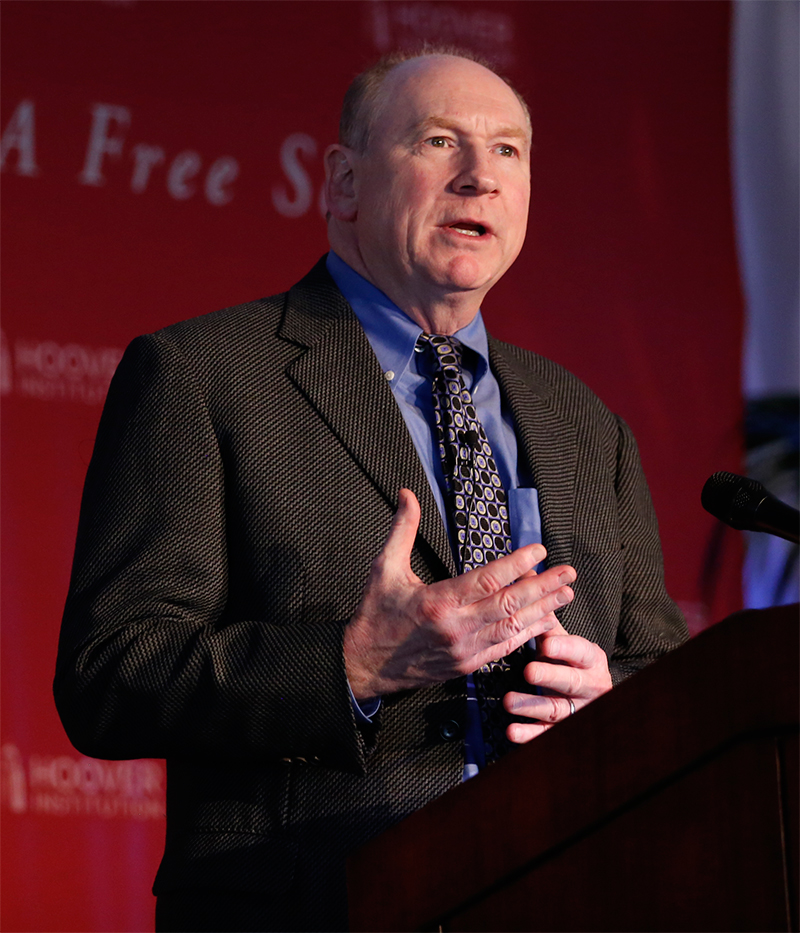
Minimum wage laws are job-killing policies that create barriers to prosperity and fail to reflect the most basic understanding of supply and demand economics, says Lee Ohanian, an economist at the Hoover Institution.
Ohanian’s economics research focuses on crises, growth, and the impact of public policy. He is a professor of economics and director of the Ettinger Family Program in Macroeconomic Research at UCLA. The Hoover Institution recently interviewed him about the issue of minimum-wage laws:
What is the rationale for minimum wage laws by supporters of this policy?
Ohanian: There are two groups of supporters for this policy. One is those who believe that a higher minimum wage will automatically raise compensation of low-wage workers and thus improve their incomes. This legislation is often called “living wage” legislation, and it is also supported by all major 2020 Democratic presidential candidates.
The belief that a “living wage” policy will be effective for low-wage workers is based on two assumptions. One is that businesses can afford to pay these workers more than they are currently receiving, and the second is that few, if any, of these workers will lose their jobs as a consequence of this policy. This is a very dangerous line of thought. Competition among businesses is tougher than ever, which means that most businesses are getting by on the thinnest of profit margins. Raising employment costs even a little can be the difference between a worker who generates enough value to have a job and one who doesn’t. Moreover, even for businesses with higher margins, raising the minimum wage is still dangerous because the worker's job might be outsourced.
The second group that supports a higher minimum wage is labor unions. They couch their support of higher minimum wage in terms of wanting to help all workers, including non-union workers, but their real agenda is blatant self-interest that flies under the radar. This includes the fact that some union wage rates are multiples of the minimum wage, so a minimum-wage hike automatically means a higher union wage. In addition, the fine print of much “living wage” legislation exempts unions from the minimum wage. This increases the likelihood that a business will accept a union.
What does the data say about the claims for minimum wage laws lifting low wage earners higher up the economic ladder?
Ohanian: Sadly, minimum wage legislation is a leading example of the law of unintended consequences in that attempts to increase incomes of low-wage workers through minimum wages leads to some of these workers losing their jobs. From the perspective of a low-wage worker, raising the minimum wage is somewhat like playing Russian roulette. The higher is the minimum wage, the greater the chance that a low-wage worker loses their job.
Moreover, the effect of high minimum wages is pernicious. Immediately after the legislation passes, there may not be much, if any, immediate job loss. But over time, as employers adjust their business strategies and human-resource management, job loss begins to accumulate. But because this takes a bit of time, it may be hard to identify, which leads many to conclude that “increasing the minimum wage does not depress employment.” Nothing could be further from the truth.
How is youthful employment in California affected by its high minimum-wage policies?
Ohanian: Sadly, minimum wages have very large and negative effects on young people, particularly those with very little work experience. Most minimum-wage jobs are held by those under the age of 25 and who work part time. Only about 0.4 percent of full-time, head-of-households individuals earn the minimum wage. This means that the whole idea of a “living wage” is a myth. Almost no one who is the main provider for their family is earning the minimum wage. Moreover, this is a very costly myth. Every time we raise the minimum wage, kids lose their jobs. This isn’t efficient, and it isn’t right. We should not be implementing policies that prevent people from being able to work.
Does social justice play a role in minimum-wage laws, and to what effect?
Ohanian: I view social justice as a set of institutions and rules that allow people to safely and efficiently make free choices, and in which the rules apply to everyone equally. I wish that the biggest supporters of a higher minimum wage understood that the biggest losers from these policies are minority kids, who often attend low-quality schools, and who haven’t yet been able to build a sufficiently long employment record.
In 2014, when the economy was still very weak, I was asked to meet with a Democratic candidate for the US House of Representatives and share economic ideas. During this meeting, he indicated that he was a strong proponent of a higher minimum wage to “help hard-working low-income families.”
I replied by asking, “Do you know that today’s unemployment rate among black teen-agers is nearly 40 percent?” He responded by saying “That is terrible! Racism is such an awful thing.” I replied, “Yes, racism is awful, but did you know that the black teenage unemployment rate in 1950 was about six percent? Just a tiny fraction of what it is today. Society today is not more racist than in 1950—the difference is the minimum wage.” When I told him this, his expression showed that he had never even thought about these issues from a market perspective.
What measures could California instead take to better boost youthful and young-adult employment?
Ohanian: There are much better policies, such as enterprise zones, that incentivize businesses to open up in poor neighborhoods and to hire kids. Another is expanding the earned income tax credit. This is an alternative because it increases the take-home pay of low-income workers without raising the employment cost of these workers to businesses.
Any other issues to address?
Ohanian: As an economist, it is painful for me to see how many politicians and policy makers believe that a higher minimum wage would help our country. Virtually every Democratic presidential candidate supports a $15 per hour minimum wage, without thinking critically about whether this might hurt the people they intend to help. In 27 years of teaching and conducting economic research, I have never seen a time like today when so many people do not trust a free market, in which a buyer and a seller are allowed to freely strike a deal. Instead, so many seem so committed to constraining personal and economic freedom by erecting barriers to free trade among individuals.
This is extremely dangerous and threatens the remarkably high level of economic prosperity that we enjoy today.
MEDIA CONTACTS:
Clifton B. Parker, Hoover Institution: 650-498-5204, cbparker@stanford.edu








